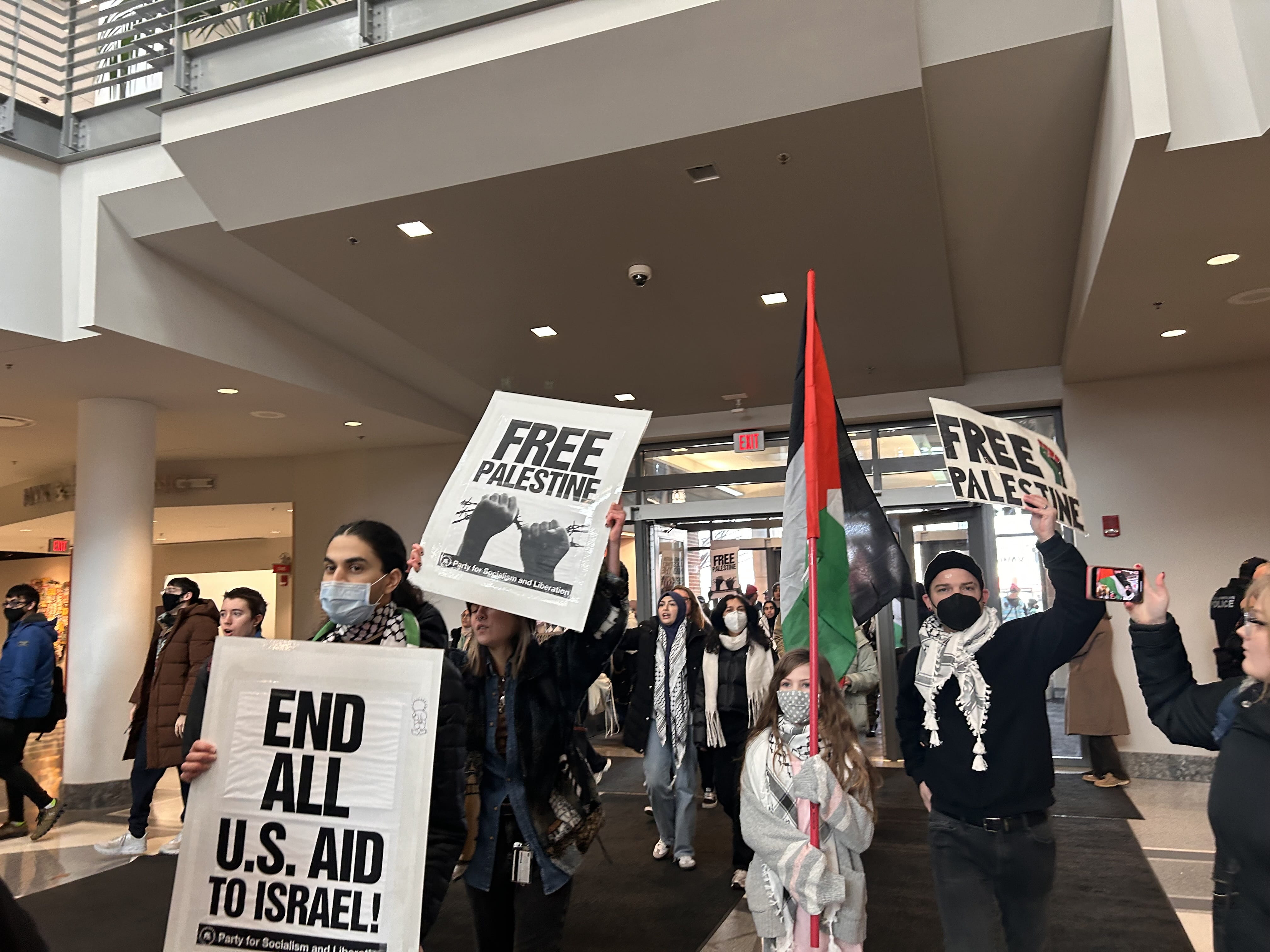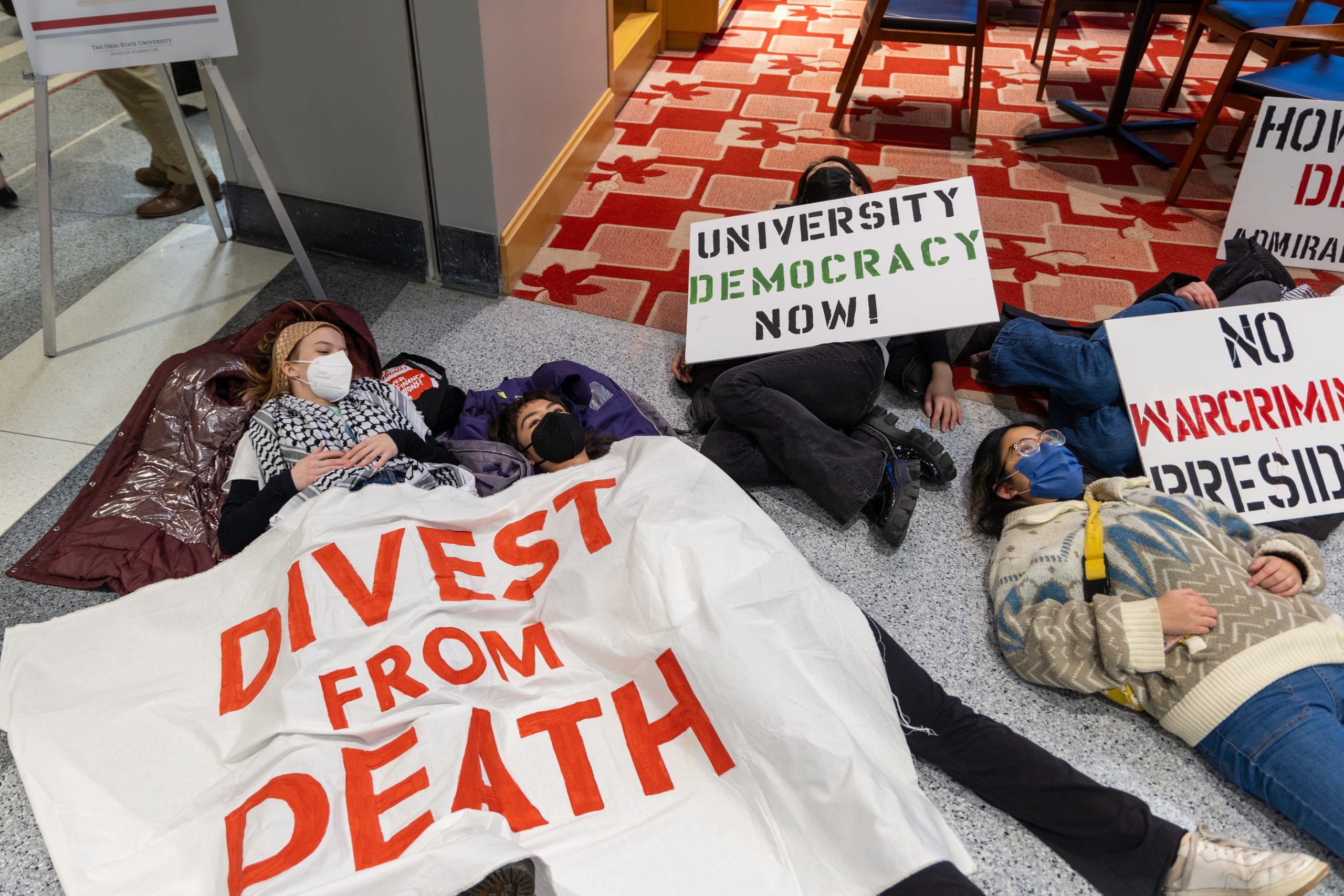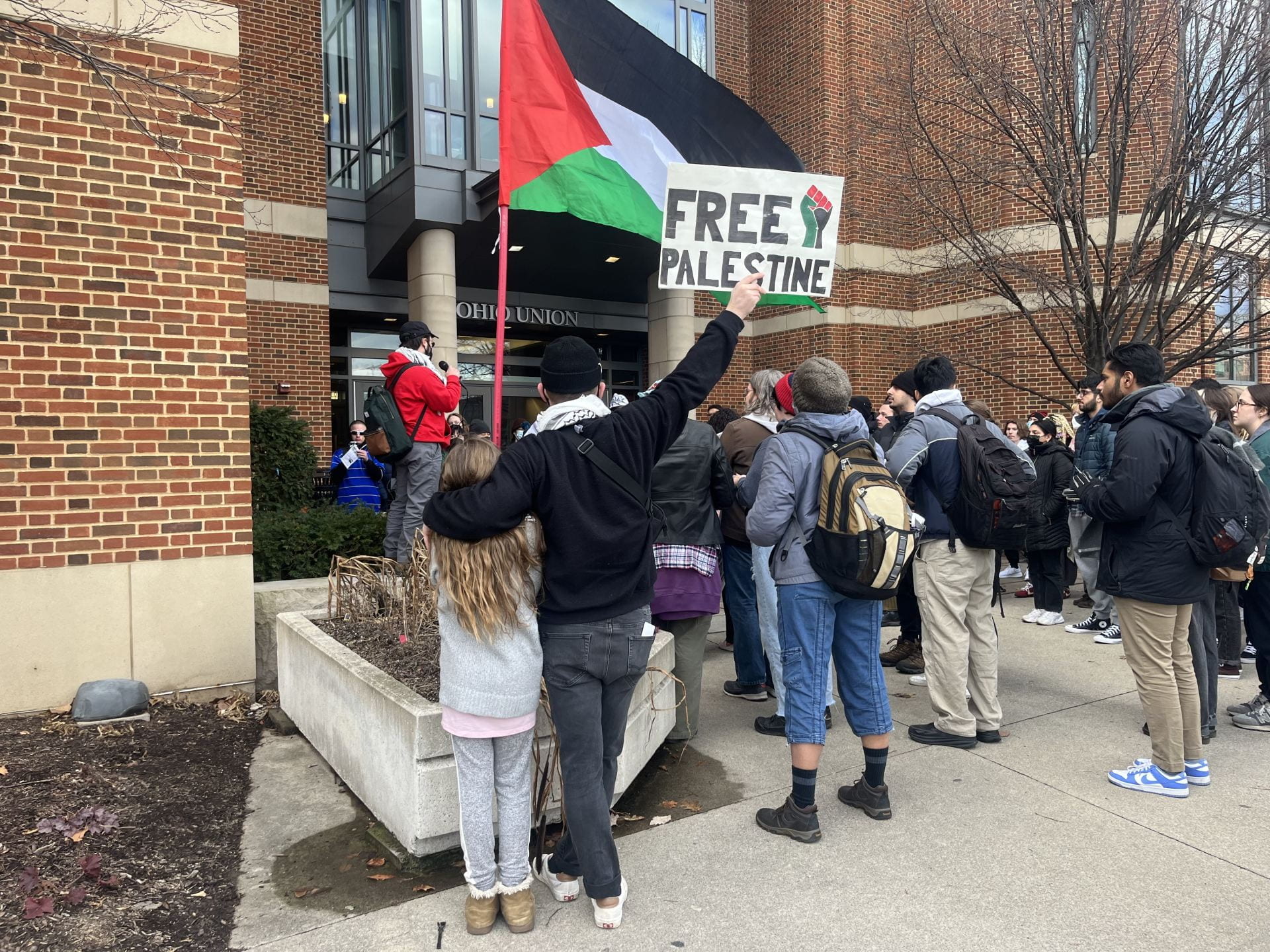
Students and community members entered the Ohio Union demanding justice for Palestine Thursday. Credit: Kate Shields | Campus Editor
As university President Ted Carter Jr. began making appearances across campus, students in support of Palestinians returned to protesting the Israel-Hamas war and Ohio State’s investment in companies operating in Israel.
On Thursday, around 70 students and community members held flags, gave speeches and chanted in and outside the Ohio Union. The group then walked along North High Street, stopping at the corner of 15th Avenue to protest outside Carter’s University Square South office.
Members from groups including the Party for Socialism and Liberation, Ohio Youth for Climate Justice and Students for Justice in Palestine said they want Ohio State to divest from companies investing in the killing of Palestinians.
Since the beginning of the Israel-Hamas war on Oct. 7, over 22,800 Palestinian deaths and around 1,200 Israeli deaths have been reported, according to the Associated Press.
In addition to shouts for divestment, the group chanted “No justice, no peace,” “Resistance is justified when people are occupied,” “Intifada revolution” and “Long live the intifada.”
Some protesters also spoke against Carter’s military career, which spanned 38 years and included 125 combat missions in Iraq, Afghanistan, Bosnia, Kuwait and Kosovo, according to previous Lantern reporting.
“When war hawk Ted Carter comes in to lead OSU after spending 10 times longer contributing to U.S. imperialism’s destruction in the Middle East than he did studying in university, should we trust him?” Jewel Horak, a first-year in linguistics, asked.
In an email, university spokesperson Ben Johnson said Carter “brings an unparalleled combination of strategic leadership, experience in higher education and service to The Ohio State University.”
Similar demands were shared Wednesday outside a meeting between Carter and several student organizations in the Union’s Keith B. Key Center for Leadership and Service.

Members of Ohio Youth for Climate Justice called for Ohio State’s divestment from Israeli companies outside of President Ted Carter Jr.’s welcome event Wednesday at the Ohio Union. Credit: Caleb Blake | Photo Editor
The group chanted “From the river to the sea, Palestine will be free” and “Not another penny, not another dollar, no more money for Israel’s slaughter” outside the event while holding signs in front of those walking into the event.
Mariel Trinidad, a recent alum and member of Ohio Youth for Climate Justice, said divestment from Israel would ultimately bring more productive investments that would improve the students’ way of life at the university.
“Basically, to divest means to retract their funds and to invest in something more meaningful, like maybe transportation around the city or tuition support [for] students,” Trinidad said. “Things that could improve students’ lives here instead of hurting millions across the ocean.”
Trinidad said she was hoping for more responsiveness from Carter because he will be more permanent in the position of president than previous interim President Peter Mohler, who left office when Carter joined Ohio State on Jan. 1.
“We’re really hoping that he listens to us and that he might be able to work with us and listen to our demands,” Trinidad said. “And above all, use his status and his position to take a stance on big issues around the world that his students really care deeply about because the last president we had, there was no relationship there, between what we care for and what we demand.”
Ohio State has posted a series of statements on the war to its Office of Marketing and Communications website, including sentiments from Mohler.
“Our Shared Values call us to put people at the center of all that we do through care and compassion. Ohio State has been focused on reaching out to and supporting members of our university community in these deeply troubling times,” the website said. “We recognize that this is affecting a wide range of individuals and groups across the university and community. The university will continue to focus on taking actions that enhance the safety and well-being of our students, faculty and staff.”

Students and community members gathered outside the Ohio Union in support of Palestine liberation Thursday. Credit: Kate Shields | Campus Editor


